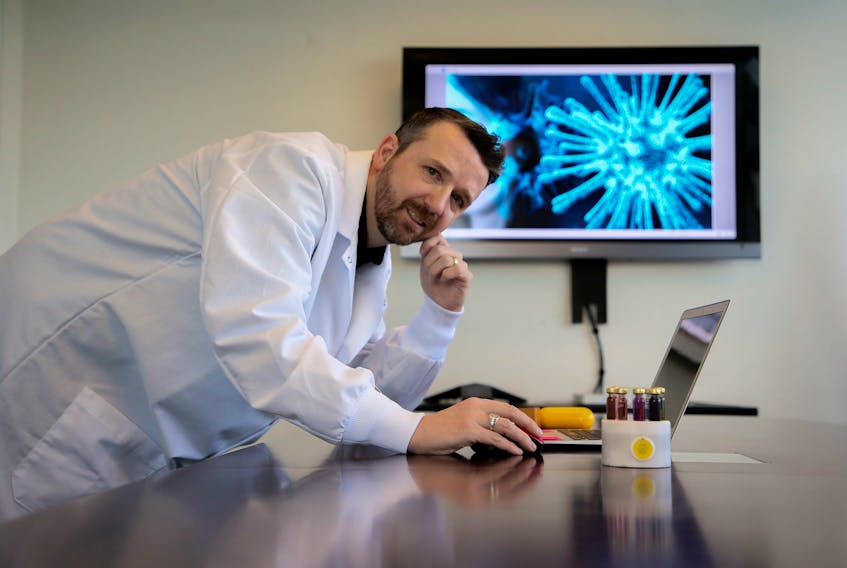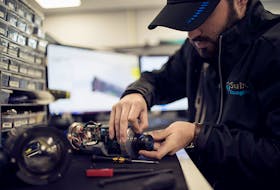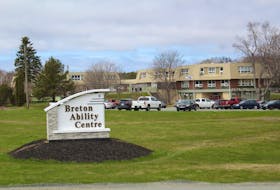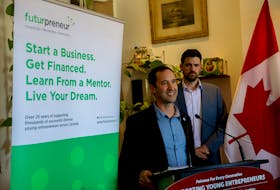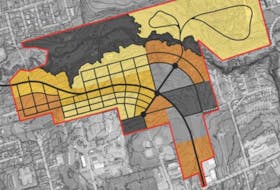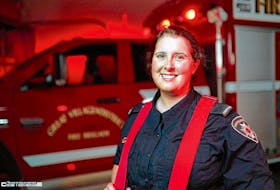A test to screen for the coronavirus that works like a pregnancy test is being developed by a Halifax company.
Screening that employs molecular-based technology costs hundreds of dollars and take hours to provide a result, but Sona Nanotech Inc. CEO Darren Rowles says his company will produce and distribute a lateral flow test for $50 that will give a primary result in five to 10 minutes.
“Most people are familiar with that form, when you say to them it’s like a pregnancy test, that style of format. But that format can be used for so many things, not just pregnancy, but infectious diseases like HIV, malaria, TB… It can be used in so many different things,” Rowles said.
One of the biggest challenges in developing any test is sourcing biological material specific to whatever is being tested for, in this case a strain of virus, Covid-19, different from previous coronaviruses like SARS (severe acute respiratory syndrome) and MERS (Middle East respiratory syndrome).
“If you used biological material that was used to detect MERS and SARS, it wouldn’t necessarily detect very well this new coronavirus strain, the Covid-19,” said Rowles, whose company has sourced biological material from UK-based Native Antigen Co.
Sona Nanotech has been devoting its resources to this project for about a month.
“I said to the team, ‘I can foresee this becoming a huge issue,’ similar to the Ebola epidemic I worked on in 2013-14, and that they’re going to need a fast screening test of some sort, however it’s deployed,” said Rowles. “So we got to work.”
The company has had calls from around the world, with pre-orders being made for a test that is probably months from coming to fruition.
“We haven’t got a test ready to go at this point, and anybody that makes a claim that they have a test ready to go in a lateral flow-based format, I would not believe that. The key thing was making sure you had materials specific to the virus, and those materials, as far as we’re concerned, have only been made available to commercial parties this week,” the CEO said. “It’s very hard to put a time frame on it at this point because this is a brand new test, using new brand new creative materials. There’s still a lot of R&D work to be done.”
Rowles said some lab-based results might be available within two to four weeks, with a few more weeks needed to have a working lab-based prototype.
“Four to eight weeks, maybe, for some initial results, and maybe 12-16 weeks in total for a working prototype. This is slightly uncharted territory, not your regular test development program that we would undertake,” said Rowles, who is already in contact with the Food and Drug Administration in the U.S., which is drafting the documentation required for this type of test to be submitted for approval.
Rowles expects there will be multiple commercial channels for the sale of his company’s test when it’s complete, including aid agencies, local governments, public health authorities, private hospitals and border security forces.
“Obviously, the huge demand will be from hospital laboratories and public laboratories in affected areas, specifically in China where this outbreak is happening. Not just in China, there’s lots of countries around the world being affected by this, and other countries want to be prepared for this and put in protocols.”
A test that provides rapid results would be helpful in screening people before they enter a closed public space, like a cruise ship or an airplane, to verify if a patient can be released from quarantine and to if patients require further testing or treatment in a clinical setting.
“If you take the test and it comes back as a negative, you get to be able to be triaged to a safe zone with other negatively predicted patients, and you’re not in the same space as positive patients,” said Rowles.
Patients would probably then need to be administered the molecular-based test, but medical staff could concentrate their efforts on those who test positive. "That’s how you contain the spread of these things, you’ve got to separate people because if you’re not separating them then literally everybody’s going to get it,” he said.

